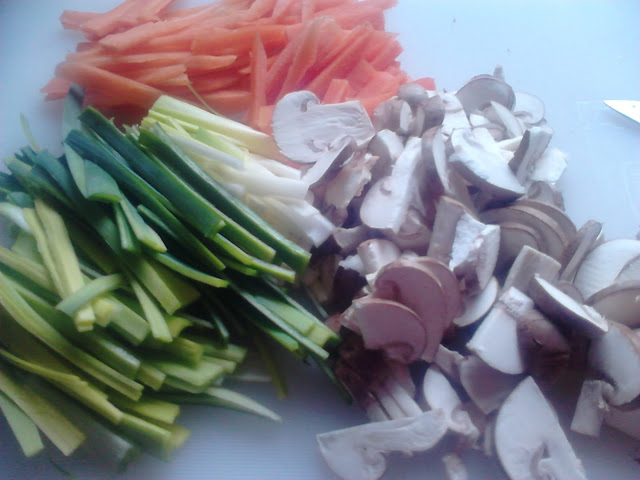Bananas - are you getting enough?
DAILY NUTRITION INTAKE
Have you ever thought about the goodness in the food you eat and whether you are getting enough of your daily nutritional intake or do you just eat what you like?
I was thinking about my nutritional intake the other day when I was craving a banana. That's right I had a craving for a banana, not a gin and tonic or a French patisserie but an actual banana. I thought about what could be my reason for this banana craving? Is it just a craving for the taste or is my body trying to tell me something?
According to new research by Adam Drewnowski, PhD, of the University of Washington, "Food cravings arise to satisfy emotional needs, such as calming stress and reducing anxiety."
I can honestly say I was not craving a ripe banana because I was stressed or anxious, anyway, I was ACTUALLY craving a banana and I wanted cheddar cheese with it!
😝You may screw up your face or gag, but I dare you to try it, the flavours accompany each other perfectly. The salty cheddar with the sweetness of the banana. Yum Yum! 😋
CHECKING THE FACTS
I decided to check the nutritional facts about bananas and cheddar cheese, maybe my body was giving out signals for bananas because I needed a dose of potassium to help regulate an imbalance in my body? Which could be quite possible, I hadn't eaten a banana for at least 10 days and normally it is in my daily intake of fruit.And then there is the cheese factor, which is interesting, because I prefer my white cheeses, cottage, feta and goats, and there I was craving a bit of cheddar with my banana. Very interesting! I know cheese is a good source of protein and a rich source of calcium.
Here are some interesting facts - Bananas are high in potassium which is a vital mineral for muscle and nerve function and it helps regulate blood pressure.
Cheese is a rich source of calcium and a good source of protein and it is well-known that calcium plays an important role in building stronger, denser bones early in life and keeping bones strong and healthy later in life.
Let's take this information a bit further. Did you know that -
Potassium - is a mineral that is required in significant amounts for human health, and Potassium - balances sodium in the body to regulate hydration.
Functions of Potassium:
- Regulation of pressure between the inside and outside of cells. With inadequate potassium, cellular wastes are not efficiently transported into the extracellular spaces and carried away. Toxic material is left to accumulate in the cell can cause premature cell death.
- Conversion of blood sugar into glycogen for storage in the liver and muscles. Inadequate glycogen storage leads to physical and mental fatigue.
- Maintaining proper pH balance of the blood.
- Maintaining proper body water balance
- Stimulating insulin production
- Maintaining digestive enzyme function and efficiency
- Maintaining optimal nerve and muscle function
- Relaxing muscle contraction in balance to calcium, which induces contraction.
Deficiency can lead to:
Lactic acid (and other waste metabolites) buildup in the body, which leads to -- Muscular weakness
- Irregular heartbeat
- Paralysis
- Problems in nerve conduction, which leads to
- Mental confusion
- Heart disturbances
- Problems with muscle contraction
Calcium - is the most abundant mineral in the human body. About 99% is in the bones and teeth - where it plays a structural role. The remainder 1% is present in body tissues and fluids - where it is essential for cell metabolism, muscle contraction and nerve impulse transmission.
Low levels of calcium in the blood and tissues can cause hypocalcemia - which involves sensations of tingling; numbness; and muscle twitches. In severe cases, muscle spasms may occur, called tetany. More likely to be due to a hormonal imbalance in the regulation of calcium rather than a dietary deficiency.
Excess calcium in the blood can cause nausea, vomiting and calcium deposition in the heart and kidneys. This usually results from excessive doses of Vitamin D and can be fatal in infants.
Complications:
Vitamin D is needed for absorption of dietary calcium - therefore calcium deficiency may be linked to rickets in children. In adults, calcium deficiency may lead to osteomalacia (softening of the bones). This may be related to repeated pregnancy with lengthy breastfeeding.
Osteoporosis can be due to calcium deficiency - which involves loss of calcium from the bones and reduced bone density. Bones become brittle and liable to fracture. Bone loss occurs with age in all individuals - usually occurs after 35-40 years and involves the shrinking of the skeleton.
Bone loss is greatest in women following the menopause - due to reduced levels of the hormone, estrogen. Post-menopausal women are particularly at risk from osteoporosis.
So it is possible my craving for a banana (potassium) with cheese (calcium) could easily be interpreted as a vital signal from my body - a possible call for help to regulate chemical imbalances.
Next time I will be closely monitoring my cravings and checking whether my body has a real need for said food craving or whether I am comfort eating because I am stressed or anxious.
What do you think?





Comments